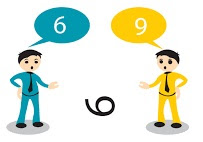How to avoid impulsive decisions?

2.Taking timeout for responding
3.Getting the perspective from mentors
Going beyond the numbers or facts:
Generally, we believe that "numbers or facts" are the real proof for making the right decisions. However, not in all situations, the facts or numbers will help us to make the right decisions. Instead, the numbers or facts lead us to make impulsive decisions and as a leader, we believe that we are taking logical right choices. We need to look at the scenario from the overall perspective.
For example,
In one of the client organizations, the worker's union put a demand to increase the compensation by quoting an absolute value per annum basis. By seeing that fact, the business head was immediately got angry and reacted to reject the proposal. Eventually, that decision led to the disturbance in the operations for some time. The disruption in the operations costs more than what the people put it as a request. Later, when the business head analyzed the demand in detail, he realized the impact was minimal daily compared to the losses they incurred.
The key realization is that the business head reacted to the mere fact rather than looking at the issue holistically in terms of the overall cost to the company, business continuity, and goodwill.
We may come across many situations in the workplace when we look at only on the number or facts, and we tend to react impulsively both positively and negatively. In either way, it would affect us professionally. It just needs awareness.
Let us discuss other methods in next week!











